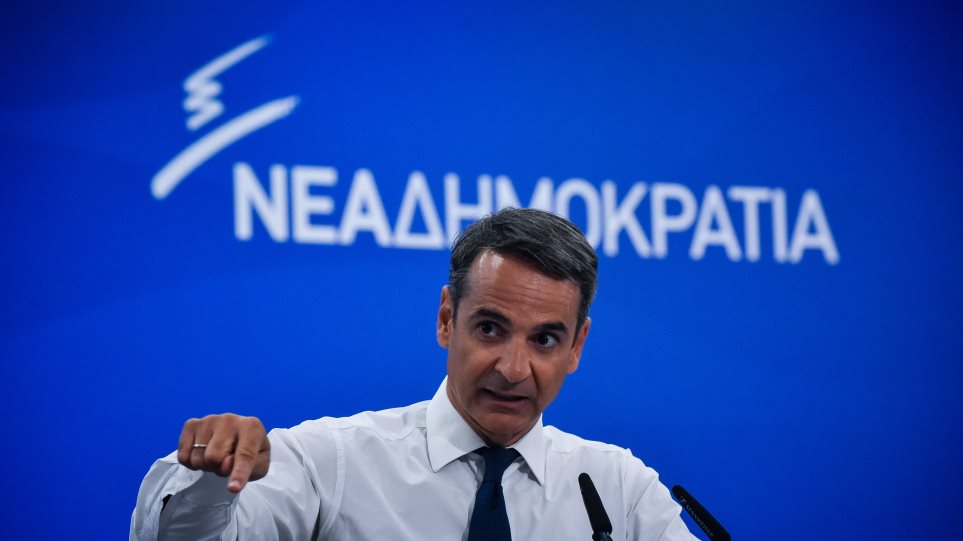
Last month, Greece's moderate rightwing Nea Dimokratia party won parliamentary elections ousting the leftist Syriza government from power. The victory followed a wildly successful pre-election campaign spearheaded by ND's political leader, Kyriakos Mitsotakis, whose promises earned him the nickname “midsummer Santa” in an opinion piece by analyst Notis Papadopoulos, who went on to write:
“[Mitsotakis] only brings good news: Greece will simply take off after his victory, investments will come thick and fast, and foreigners will bring their money to the new El Dorado, expanding growth at a pace similar to China...the sooner he manages to reconcile Greeks with the tough reality, the fewer the problems his administration will have to face.”
In many ways, Nea Dimokratia's victory had been assured long before the election. After all, Mitsotakis is the son of former Greek Prime Minister Konstantinos Mitsotakis and therefore follows in the long-standing Greek tradition of maintaining family political dynasties in power. His apparently conservative but otherwise moderate rhetoric made him an attractive alternative indeed.
But Mitsotakis's administration had barely settled in last month before it made a very sharp, very sudden bank in a worrisome direction.
A shadow cabinet by any other name
Among the first bills passed by the ND government were ones for the immediate dissolution of some of the most important financial, environmental and labor regulatory bodies in the country. These include the Financial Crimes Squad (SDOE) and the General Confederation of Greek Workers (GESEE), among others.
The ND announced these would be replaced by a National Transparency Authority, which would regulate in their place while handling the administration of public works and ensuring the prosecution of graft. Along with the administration's decision to assign executive secretaries without political veto power from Parliament, it ensures the prime minister will enjoy largely unfettered control of the country.
Topping these reforms was the nepotist assignment of one of Mitsotakis's nephews as chief of staff along with the appointment of Makis Voridis, a vocal far-right politician who has publicly aligned with Holocaust deniers, as Minister of Agriculture. PM Mitsotakis has defended these changes by claiming: “We are called upon to win a difficult and asymmetrical war that no government has managed to win so far: changing the model of governance “
An end to justify all means?
The ND administration is already under fire for some of its policies implemented so far, including the dissolution of the political asylum afforded to universities, which barred police from entering a campus, and a nebulous stipend given to children born after 2020.
Despite the harsh criticism he has received so far, the prime minister declared that these decision mark the end of the previous "era of rage", with his administration poised to unite Greece into a single, foreign-investor-friendly front.
According to Adonis Georgiadis, current Minister of Growth and Investments, "The European Union wants to have a success in Greece. We will give success to the European Union. We are proud to be Greeks, we are proud to be Europeans"
The statement seemed to resonate positively with Klaus Regling, the Eurozone's rescue fund head, who considered the country's policies a "positive" sign despite expressing concerns for how the country would be expected to cope, given its anticipated "reduced revenue". Greece is still very much in the red, with debt running as high as 180 percent of GDP, putting it in a desperate situation to attract investors.
Mitsotakis and his cabinet, it seems on the surface, have decided to implement what have been described as "adult policies" in an effort to help the country meet the European Commision's goal of 2.2 percent growth in GDP by next year.
By all accounts, the new rhetoric appears to be working among the institutions that count. Already, Greece has climbed up the rankings of the World Bank, which lists countries in terms of their ease of doing business. Greece jumped from the 72nd spot, where it had remained since 2018, to the 68th spot in just two months.
Despite this, the country is still facing a high overall unemployment rate of 18 percent, with youth unemployment as high as 40 percent, something that has yet to be addressed by the current administration even as it promises "new jobs" coming from the projected growth.
The prime minister's made a noticeably interesting slip of the tongue in a recent interview, saying that the country should "return to the past." It seems that Greece is headed exactly there: returning to a time of minimal regulation, massive taxation and an unhealthy helping of trickle down economics. ND's policies won't likely be overturned by future administrations regardless of their overall effectiveness. Greece has been set on a particularly worrisome course at precisely the moment that should have been the end of a long-standing crisis.
















